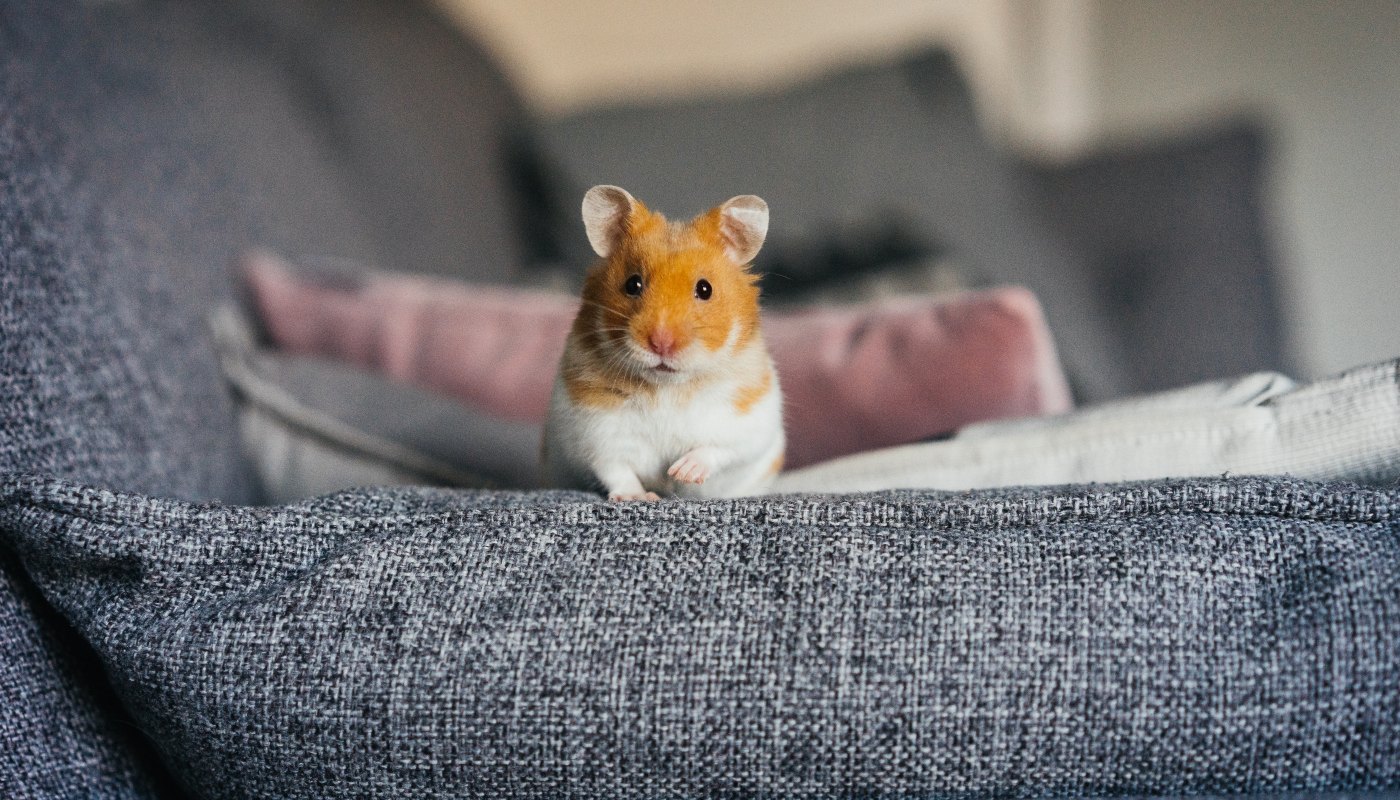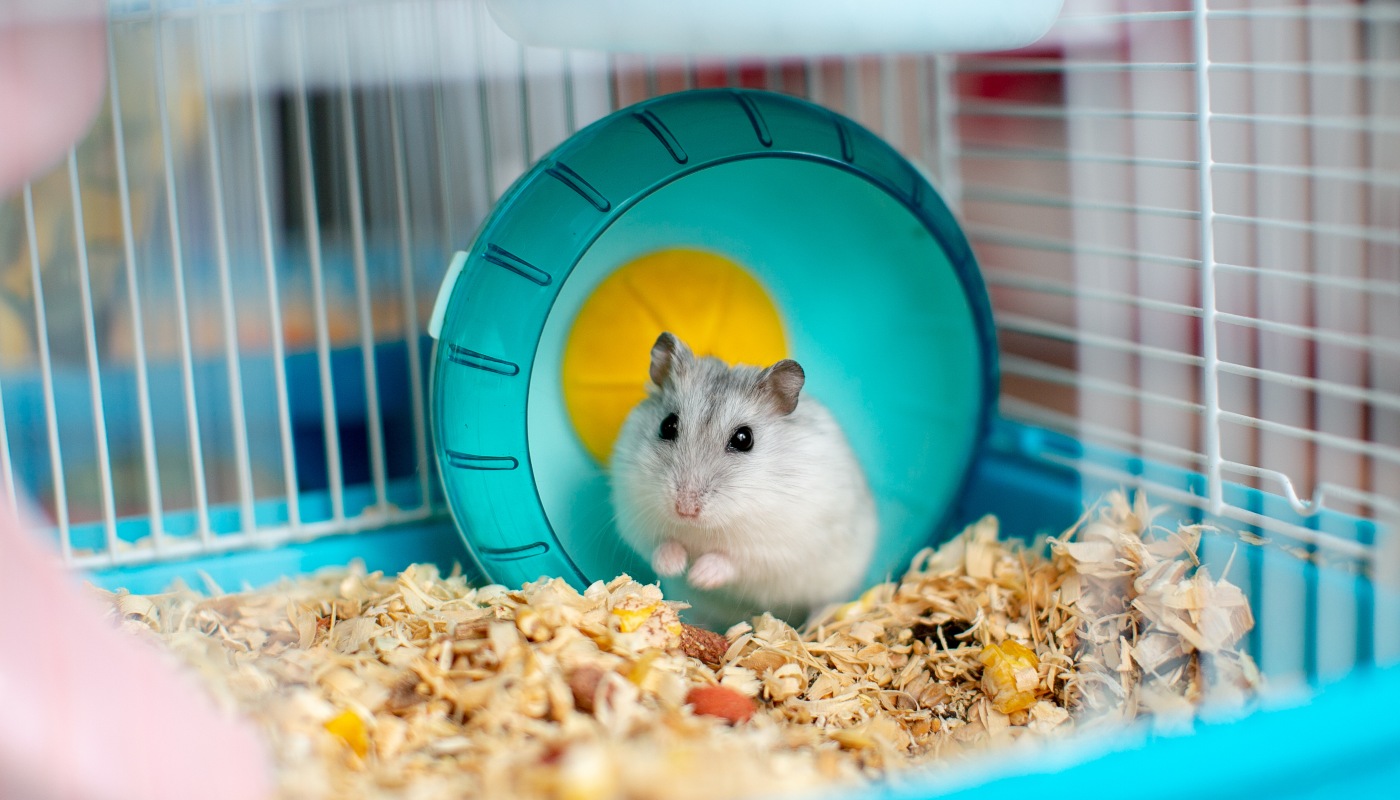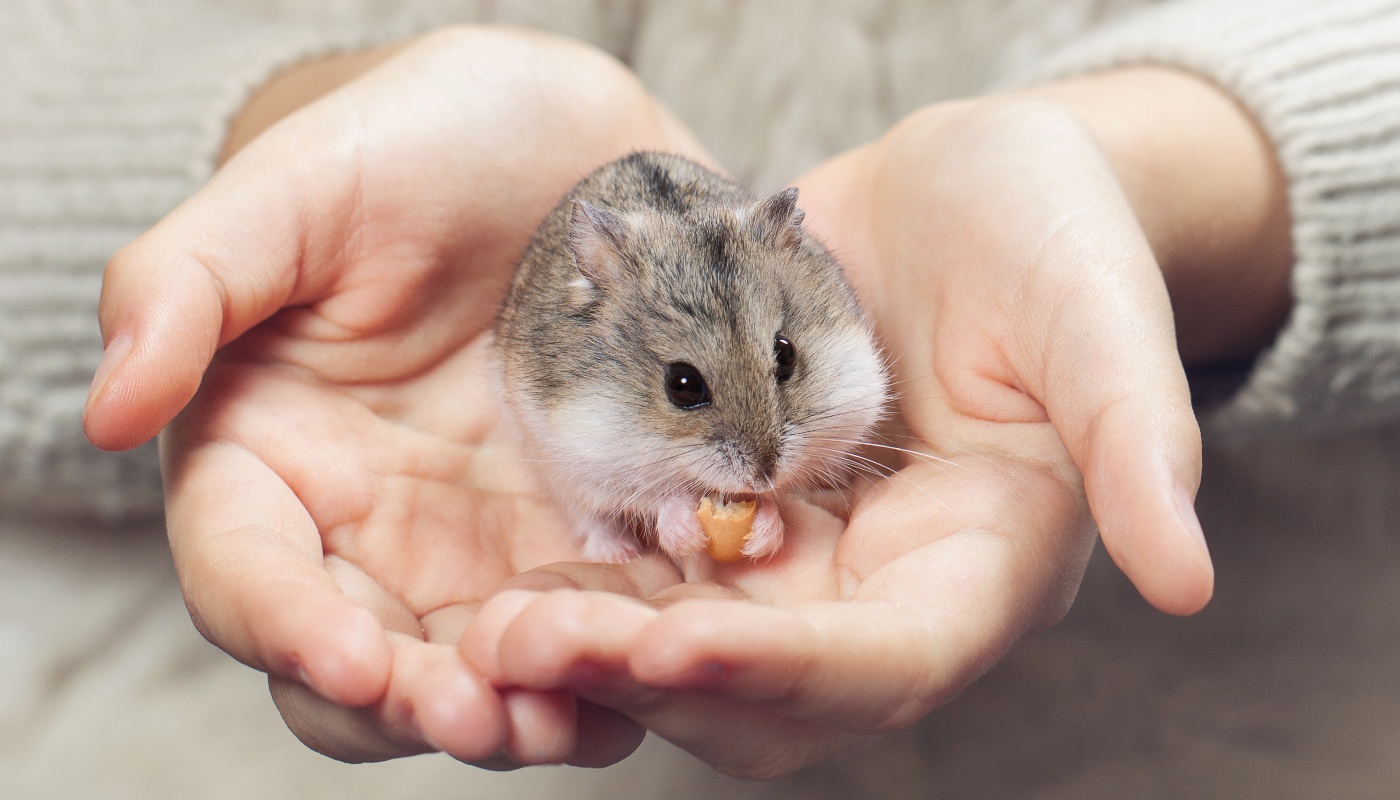How to look after a hamster?
We tell you about the essential care your hamster needs to guarantee its well-being, from a suitable diet to the optimal environment for its health.
pets
Share

Hamsters are small rodents, ideal as pets for children or adults. These tiny, delicate animals require some basic care to extend their life expectancy. Diet, hygiene and a suitable space to live in are the key factors.
What diet should a hamster have?
It should be a quality diet if we want him or her to be healthy. Here are some basic tips:
- Feed them twice a day with a seed-based feed that you can find on the market.
- Supplement this with fruit and vegetables, like apple, broccoli or nuts.
- Put their food in a clean bowl inside the cage.
- Keep a bowl of clean water in their cage which is accessible.

Common diseases in hamsters
Hamsters are more active at night, so we recommend observing them and routinely checking on them to rule out potential diseases or injuries. The most common are:
- Heat stroke.
- Abscesses, normally caused by bacterial infections or parasites due to cuts or wounds that haven’t been healed properly.
- Dust mites and fungi can arise due to the cage not being kept in good hygiene conditions.
- Colds, bronchitis and pneumonia.
- Diarrhoea or constipation.
- Bites, cuts or lesions that they can cause themselves while playing.
- Wounds in the cheek pouches: rodents usually store food here and they sometimes become obstructed or suffer small wounds.
- Eye infections: are very common, caused by bacteria or injuries.
- Wet tail: is a common disease among young hamsters due to poor diet, overcrowding and stress. To detect it: the tail and anal area will be very wet and look dirty.
Hygiene tips for hamsters
The most important thing is that the cage is big enough for him/her to move freely and that it is kept clean at all times. It should contain:
- A bedding of woodshavings which is comfortable and where he/she can go to the toilet and stay dry.
- The bedding should be changed regularly.
- Food container.
- Clean water container.
- A calcium block for them to chew and clean their teeth.
- A small bedroom-house made with natural materials for them to rest and sleep in.
- Toys, wheels, ropes...to play and have fun.

How to look after a baby hamster?
Three weeks after birth, baby hamsters can be separated from their mothers and given food, but they should receive special care, such as:
- Offering him/her food in very small pieces, since their incisor teeth and cheek pouches aren’t yet developed.
- Their diet should mainly consist of fruit and vegetables.
- Keep water clean and move it close to the hamster's nose so he/she knows where it is.
- Maintain a temperature of between 18 and 25º C.
- Prepare him/her a natural cotton wool bed for sleeping.
- Place suitable toys for their small size.






